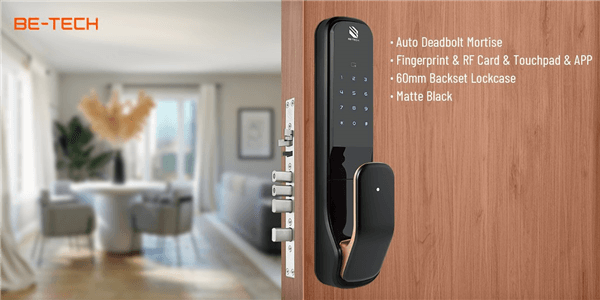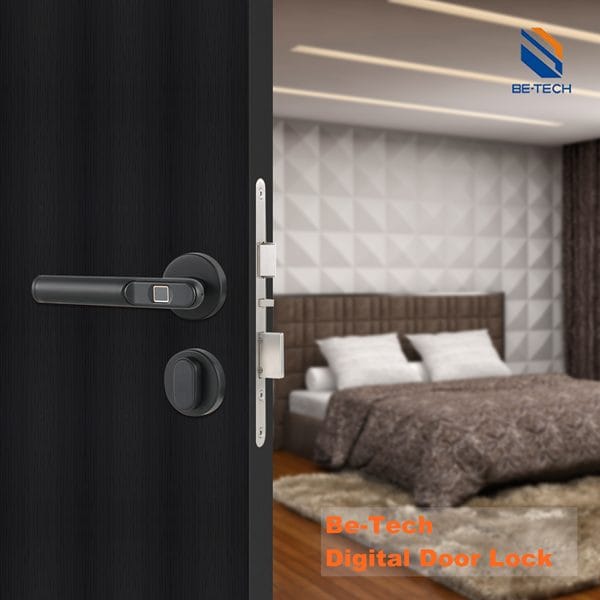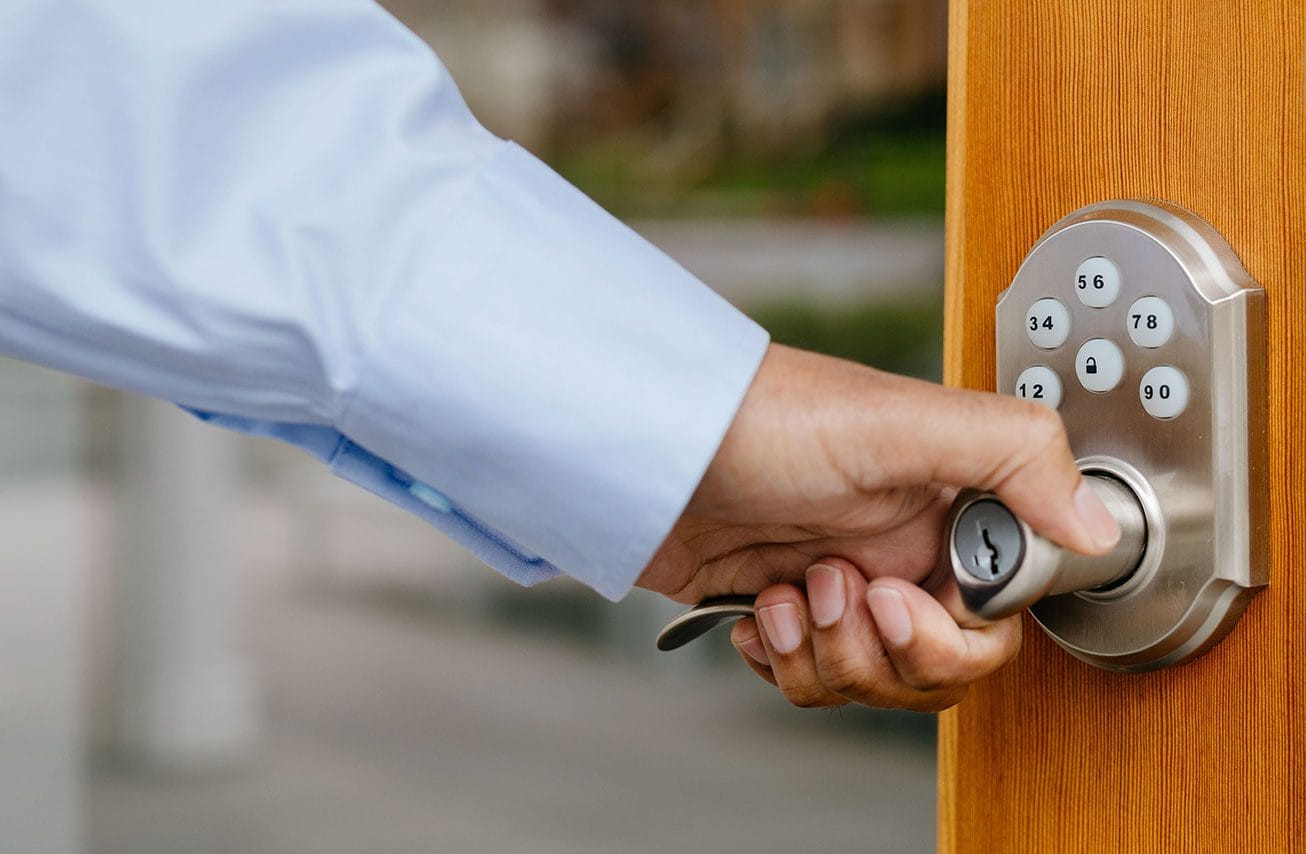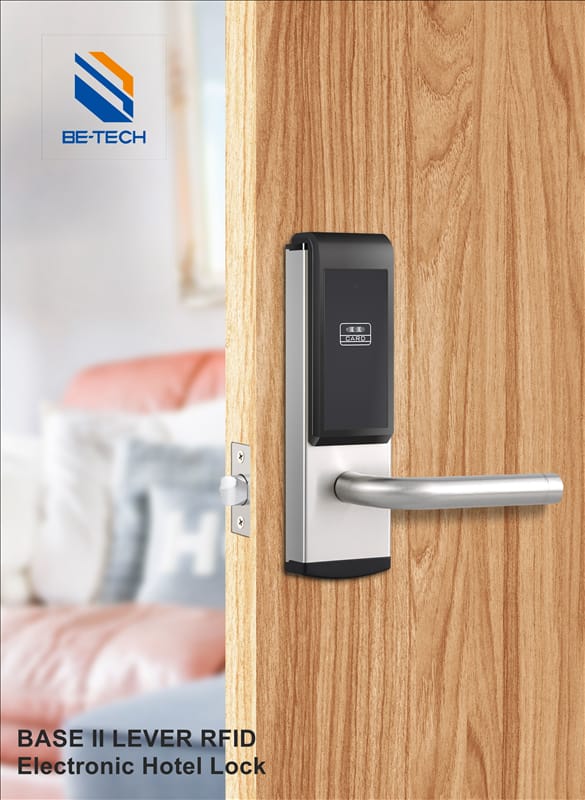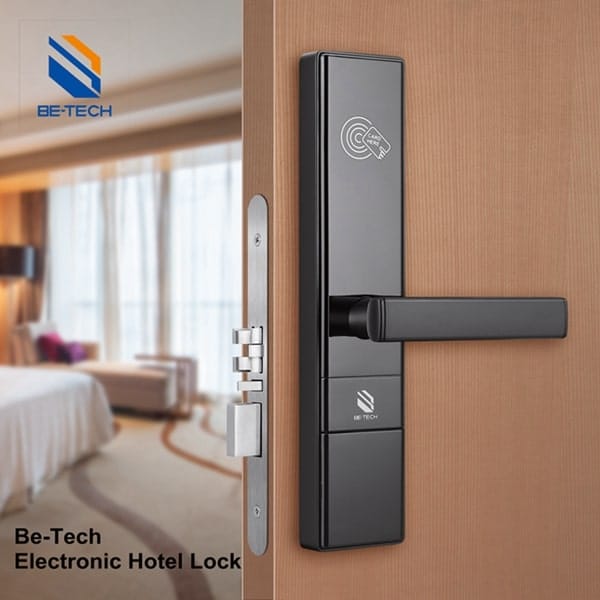Understanding commercial electronic door lock systems is essential for businesses aiming to enhance security and streamline access control processes. These advanced locking mechanisms provide significant advantages over traditional locks, making them vital in various commercial settings, including hotels, offices, and healthcare facilities. This article will delve into the definition, applications, benefits, usage instructions, common misconceptions, and relevant product recommendations from Be-tech.
Definition of Commercial Electronic Door Lock System
A commercial electronic door lock system utilizes electronic components to control access to buildings or restricted areas within a facility. Unlike traditional locks that depend on physical keys, these systems often employ RFID cards, biometric data (such as fingerprints), or keypad entries for secure access. They can be integrated with broader security systems for enhanced monitoring and management capabilities, making them ideal for various commercial settings.

Applications of Commercial Electronic Door Lock System
Commercial electronic door lock systems find applications across multiple industries:
- Hotels: These locks provide secure access to guest rooms using RFID cards or mobile keys. Be-tech’s Guardian RFID Lock enhances guest safety and operational efficiency.
- Corporate Offices: In office environments, electronic locks help manage access to sensitive areas such as server rooms or executive offices. Systems can be programmed to allow different access levels for employees.
- Educational Institutions: Schools use electronic locks to secure classrooms and administrative offices, ensuring that only authorized personnel can enter.
- Healthcare Facilities: Hospitals implement these systems to protect sensitive areas while allowing easy access for staff.
Benefits and Features
The adoption of commercial electronic door lock systems comes with numerous benefits:
- Enhanced Security: These locks are designed with advanced encryption technology that makes unauthorized access significantly more difficult compared to traditional locks.
- Convenience: Users can easily gain access without fumbling for keys. Many systems allow for remote management, enabling administrators to control access from anywhere.
- Audit Trails: Most electronic locks maintain logs of entry and exit times, which can be crucial for security audits and investigations.
- Cost Efficiency: With features like keycard management and the ability to blacklist lost keys, businesses can save on the costs associated with rekeying locks.
For instance, Be-tech’s Smart Deadbolt not only offers secure access but also integrates seamlessly with existing security protocols in commercial settings.
Installation Considerations
When installing a commercial electronic door lock system, consider:
- Compatibility: Ensure the lock is compatible with existing doors and frames.
- Professional Installation: Determine if professional installation is required or if it can be done as a DIY project.
- Integration Capabilities: Assess how well the system integrates with existing security measures.
Cost Analysis
Costs can vary widely based on:
- Type of Lock: Different technologies (biometric vs. RFID) have varying price points.
- Installation Complexity: Professional installation typically incurs additional costs compared to DIY options.
- Ongoing Maintenance Needs: Regular maintenance may be necessary to ensure optimal performance.
How to Use Commercial Electronic Door Lock System
Using a commercial electronic door lock system typically involves the following steps:
- Installation: Ensure the lock is properly installed according to manufacturer guidelines. This may require professional assistance if electrical work is involved.
- Programming Access Codes or Cards: Depending on the system type (keypad or card-based), program the necessary codes or issue cards to authorized users.
- Testing: Before full deployment, test the system with all user credentials to ensure functionality.
- Regular Maintenance: Periodically check battery levels (if applicable) and update software/firmware as needed to maintain security integrity.
- User Training: Educate all users on how to operate the system effectively, including how to reset codes or report issues.
Be-tech products often come with user-friendly interfaces that simplify these processes further.
Common Misconceptions
Several misconceptions surround commercial electronic door lock systems:
- They Are Too Complicated: Many users believe these systems are difficult to operate; however, most modern locks are designed for ease of use with intuitive interfaces.
- They Are Not Secure: While concerns about hacking exist, reputable brands like Be-tech implement robust security measures that significantly mitigate these risks.
- They Require Extensive Wiring: Many contemporary systems are wireless or require minimal wiring, making them easier to install than older models.
Conclusion
In conclusion, understanding what a commercial electronic door lock system entails is crucial for businesses aiming to improve their security measures. With various applications across industries, significant benefits in terms of security and convenience, and user-friendly operation methods, these systems represent a smart investment. For those looking to enhance their security infrastructure further, exploring Be-tech’s innovative product offerings can provide tailored solutions that meet specific operational demands.
Engage with us by sharing your experiences or insights regarding electronic door lock systems in the comments below!


